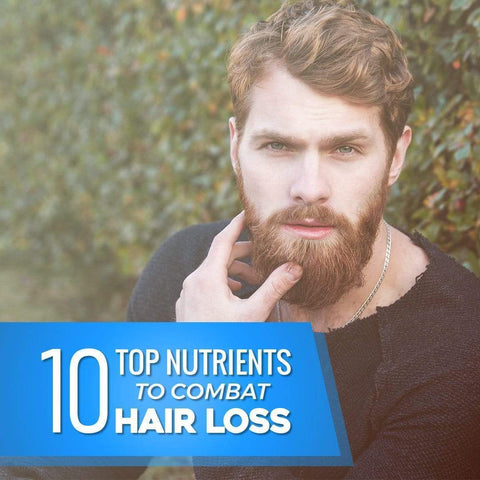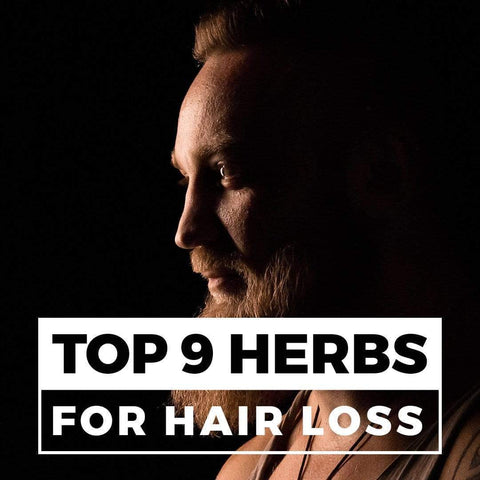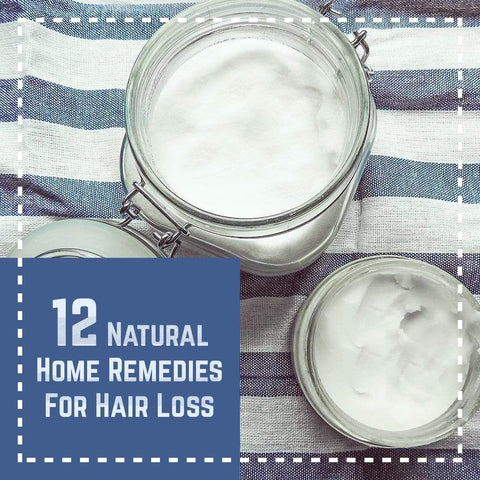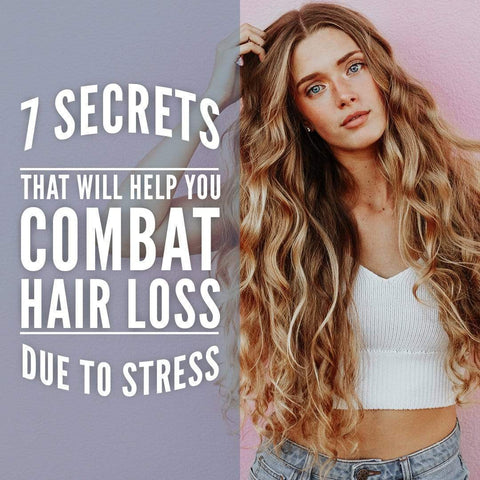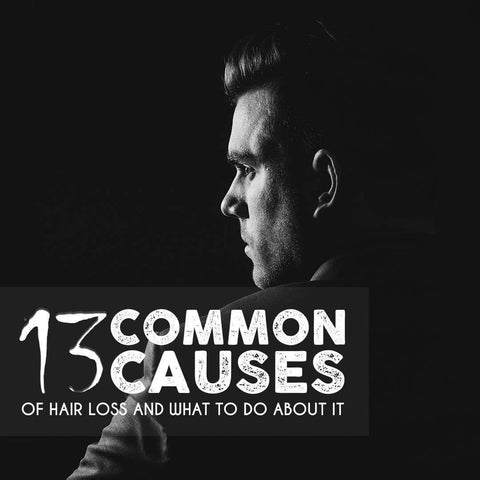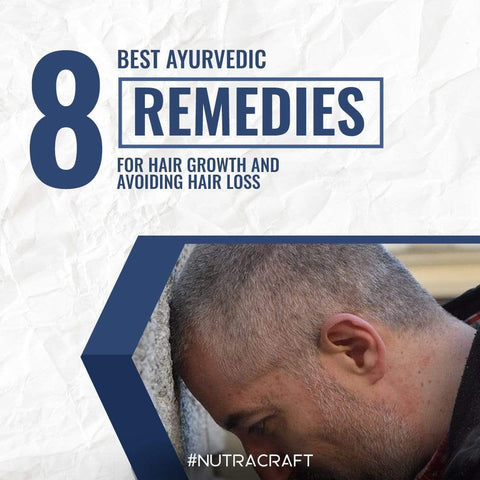
Hair loss can be an unpleasant experience for many people. Most people want a full, healthy head of hair and dread balding, bald spots, and hair thinning.
Let’s face it, cosmetic health matters. Our skin, nails, and hair are seen by the world, and they play a role in our social interactions and how we relate to others.
So you might as well do what you can to promote natural healthy hair growth. The good news is that you can affect the health of your hair profoundly through nutrition.
What Causes Hair Loss?
We naturally shed some hair on a regular basis, but noticeable balding or thinning of head hair is a sign that your hair or hair growing abilities are not functioning healthily.
A variety of factors can contribute to hair loss and baldness. Some of them are:.
- Aging
- Thyroid imbalances
- Malnutrition
- Eating disorders
- Illness
- Hormonal imbalances caused by birth control pills
- Genetic predisposition
- Stress
- Reduced circulation to the scalp
Androgenetic Alopecia - A Common Cause of Hair Loss
This condition is very common. For instance, 25% of men have some form of balding by age 30 and 65% have some balding by age 60.
Androgenetic alopecia is a genetic condition by which too much DHT, an especially potent form of testosterone, is made in the scalp. DHT causes the loss of hair by inhibiting hair growth and shortening the hair growth cycle so that more hair is shed than replaced.
This condition is very common. For instance, 25% of men have some form of balding by age 30 and 65% have some balding by age 60.
Exclusive Bonus! Download the FREE report ‘12 Top Foods For a Healthy, Thick Head of Hair’ by clicking here.
Hair Loss in Modifiable
Luckily, your only option isn’t just to sit back and let hair loss run its course. Just because there are genetic factors that play a role in hair loss doesn’t mean that you should give up and think that everything is predetermined. Read about how you can promote hair growth and fight hair loss through your dietary choices here.
Natural herbs, nutrients, and medicinal compounds can also promote hair growth and fight hair loss. Scientific studies have evidenced this to be true. Below is a list of some of these ingredients!
Vitamins, Minerals & Herbs that Fight Hair Loss
1. Green Tea Leaf

Green tea isthe perhaps healthiest beverage in the world because of its wide-ranging health benefits such as improving immune function, fighting inflammation and oxidative stress, improving mood, and enhancing DNA repairƚ.
This incredible beverage might also help hair growƚ. In some mice, consumption of green tea polyphenols caused significant hair regrowth where hair had previously been lost. Also, green tea might help lower DHT production, thereby fighting androgenetic alopecia baldness. And in vitro, green tea administration enhances human hair growth by preventing cell death and stimulating hair cell growthƚ.
2. Pantothenic Acid (Vitamin B5)
This B vitamin is so crucial for healthy hair growth that scientists have identified a slew of roles that it plays in keeping hair growing and healthy. Pantothenic acid is critical to proper hair growth due to the part it plays in cell division in the hair follicle. It also gives hair proper moisture, has anti-inflammatory properties, and protects and has moisturizing abilitiesƚ. In addition, it promotes healthy coloring of hairƚ. In a trial on women with hair loss, one supplement containing pantothenic acid did cause increased hair growth.
3. L-Cysteine
This is a sulfur-based amino acid that has been found to be critically involved in healthy hair growthƚ. First, L-cysteine is a building block for the main protein that makes up hair – keratin .
Keratin is a very durable protein that is plentiful in healthy hair (just as collagen is plentiful in skin tissue). Without enough keratin, hair is weak and brittle, and hair loss is more likely to occur. Keratin even makes hair nice and shinyƚ!
Concerning keratin’s crucial role in the growth of head hair, researchers summarize l-cysteine’s ability to determine “the rate of growth, hair diameter, and protein synthesis” of hairƚ.
4. Vitamin B-6
Vitamin B-6 accompanies l-cysteine in building hair keratin. B-6 is responsible for incorporating l-cysteine into keratin so that the protein can take shape.
Clinical studies have shown the positive effects of B-6 in action. Women with hair loss have shown improvement in “hair condition” after regularly being injected with vitamin B-6ƚ.
5. Silica

Silica is the third most abundant element in the human body, and it is critical for optimal hair and skin healthƚ. There is evidence that silica lowers the chance of hair loss and improves hair appearance and “brightness”ƚ. Silica is also important for promoting the strength of hair fibersƚ.
You can get silica from foods like vegetables and whole grains, but many people don’t eat adequate amounts.
A double-blind, placebo-controlled trial demonstrated that women with thinning hair who took a supplement containing silica had numerous indications of hair growth “Hair volume, scalp coverage, and thickness of hair” improved after 90 days of supplementation. Silica’s positive effect on hair health seems to build over a longer period of time because after 180 days of taking it, participants noticed additional benefits in hair shine along with benefits to skin healthƚ.
Topical treatment with a silica-containing solution has also been demonstrated to improve hair health.
6. Biotin (or vitamin B-7)
Biotin, also known as vitamin H (the H represents Haar und Haut, German words for “hair and skin”) or vitamin B7, is a water-soluble vitamin of B-complex. Getting enough biotin is another way to ensure that you’re giving your hair a fair chance at growing properly. Because, indeed, hair loss is a symptom of biotin deficiencyƚ.
Individuals with hereditary disorders of biotin deficiency additionally have evidence of impaired immune system function, including increased susceptibility to bacterial and fungal infections.
7. Saw Palmetto

This herb is a small palm plant that grows a few meters tall. It addresses the underlying factor of the most common cause of baldness – androgenic alopecia. The excessive amounts of DHT (the potent form of testosterone) that are generated in people with this condition can be decreased by saw palmetto.
Saw palmetto decreases the enzyme that converts testosterone into hair loss-causing DHT. This herb most likely decreases the amount of DHT that hair follicles soak up, and it decreases the binding of DHT to hormone receptors, thereby diminishing its effectsƚ.
Saw palmetto is used by many people to fight androgenic alopecia and prostate issues caused by excessive DHT. And the herb has been demonstrated to inhibit DHT production with similar effectiveness to finasteride, a drug made for that purpose.
8. Choline
Choline is described as a “vitamin-like” essential nutrient that is found in meat and eggs but also some plant foods like peanuts, cruciferous vegetables, and rice. You have to get an adequate amount of choline from dietary sources because humans do not synthesize enough of it on their own.
This nutrient certainly has an effect on hair health. In women, choline supplementation decreases hair brittlenessƚ. When choline was administered with silica, it improved several hair health parameters including hair strength and elasticityƚ.
9. Vitamin C
This very important vitamin that humans obtain from fruits and veggies is important for healthy skin and collagen production (among a million other things). We now know that vitamin C is important for healthy hair growth as well.
An oral supplement containing vitamin C demonstrated improvements in a variety of hair parametersƚ. Topical application of vitamin C has also been found to increase hair growthƚ. In addition, hair loss is considered a symptom of vitamin C deficiency.
The positive effects of vitamin C on hair health may be due to its impact on healthy skin and the production of the main protein in hair, keratinocytes.
10. Zinc
Since zinc is involved in hundreds of enzymatic reactions and is crucial to the metabolic processes in our body, it is bound to affect most aspects of health including hair growth. One study of mice that had chemotherapy-induced hair loss, zinc supplementation was shown to promote hair growth. Human hair loss caused by zinc deficiency can be corrected with zinc supplementation, but zinc was not successful in making hair regrow in all cases.
Sick of finding more hair down the shower drain than on your head?
A full head of thick, lustrous hair is a sign of health and wellness, but improper nutrition can cause hair to become brittle or break easily.
The good news is there is a solution. Getting the right kind of nutrition is vital to proper hair growth. However, too often, our busy lifestyles don’t afford us the luxury of being able to buy the best, nutrient-packed foods we need for healthy hair. Taking a hair loss supplement is a great way to get the nutrients you need.
What’s the problem with other solutions?
Medical options can be very expensive and most hair loss treatments focus on treating the hair itself using shampoos, ointments or other goop you put on your hair. But to help promote healthy hair growth, you have to start from within the body.
What we do differently. Our innovative hair loss product, HairXcel, contains a specialized blend of all natural ingredient, including those mentioned above, formulated to work in 3 ways.
- Integrates innovative scientific research into DHT control, a leading cause of hair loss in men and womenƚ.
- Improves circulation to the scalp, resulting in fuller, thicker hairƚ
- Minimise any further damage to the hair follicle due to oxidative stressƚ.
With a money back guarantee and 1000’s of satisfied customers you have nothing to lose and everything including your hair, to gain.





